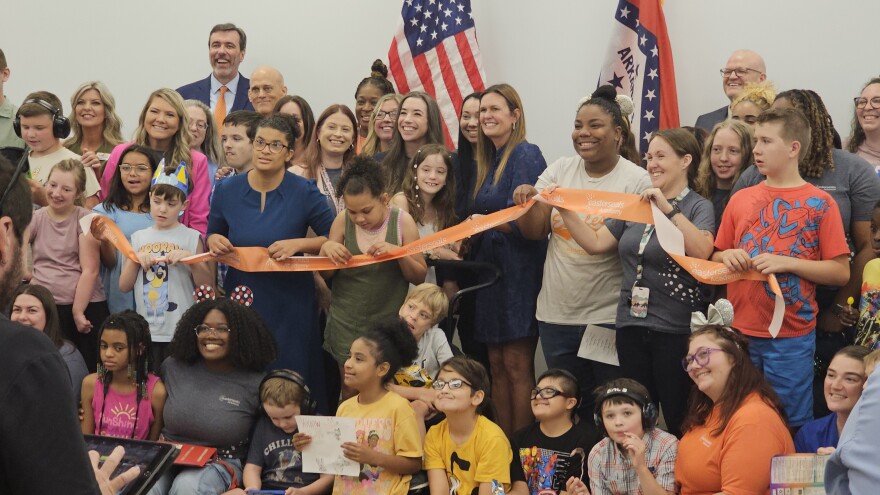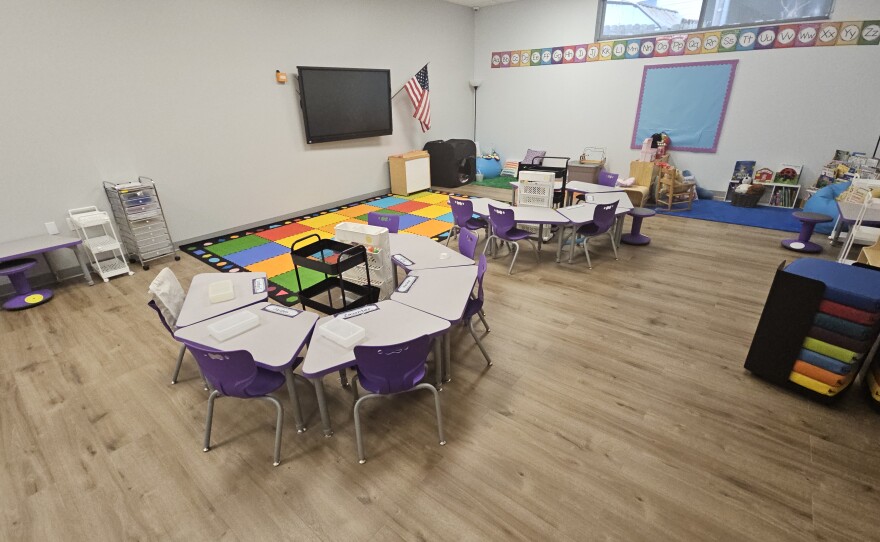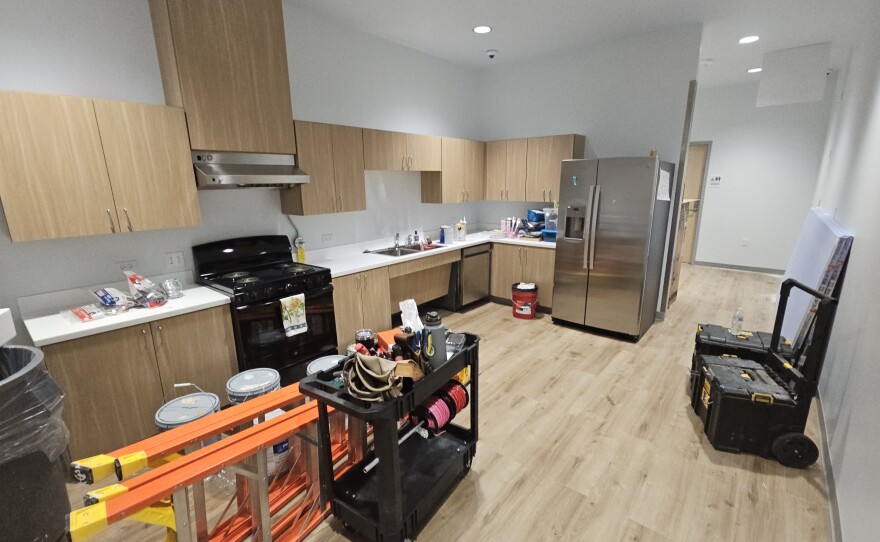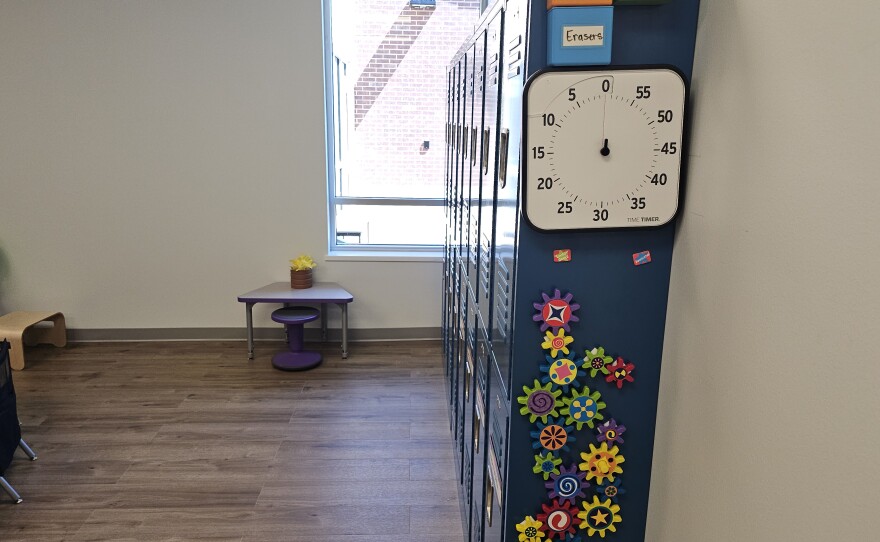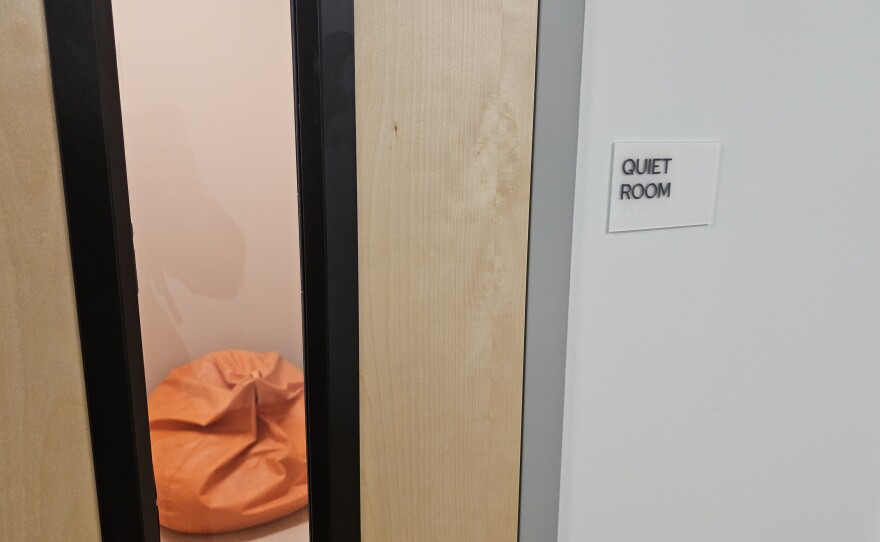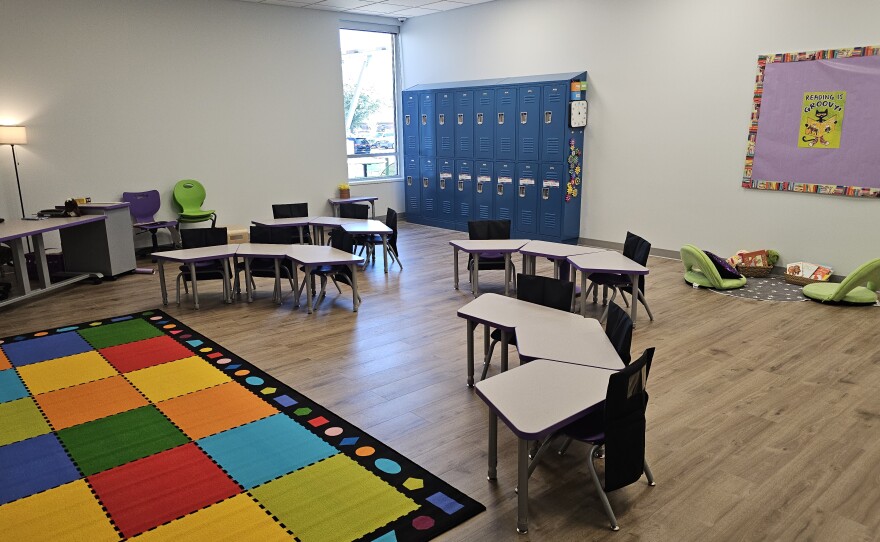When opening a story, it’s always good to start with a joke.
"Knock Knock..."
"...Who's there?"
"Howard."
"Howard, who?"
"Howard you like to tour our new school?"
And when working at a place like Easterseals, it helps to love what you do, and who you work with. Luckily, there is no shortage of dedicated people.
Miss Sid Imo has worked with the nonprofit since 1987.
"This is the only place I’ve ever worked! I started as a TA at a school-age classroom, then I went to the preschool, and was a TA in the preschool, and decided I wanted to be a teacher.”
She says every day is a challenge...
"...but it's also really rewarding, and funny, and gentle, and genuine, and crazy, and all the things!"
Easterseals Academy was founded by board member Lisenne Rockefeller and her husband, the late Arkansas Lt. Governor Winthrop Rockefeller, in the 1990s. The school was, at the time, run from their home, but later moved to a location in Little Rock's Riverdale neighborhood.
The school continued largely unchanged until the COVID-19 pandemic, when CEO Ron Ekstrand says they hit a stumbling block.
"Financially, it was struggling, and we weren't sure we could keep it open, and with COVID, we really weren't sure if we could keep people safe.”
They continued to provide their services throughout the height of the pandemic, and as word spread of their model, more space was quickly needed.
"Families were so happy with how their children were learning, and how safe of an environment it was, word of mouth spread and we opened up a second location here," said Ekstrand. "So we had like, two campuses, but we really wanted everyone under one roof."
The school launched a campaign to expand its capacity for comprehensive care and education for children with developmental disabilities. Monday, Easterseals cut the ribbon on that culminated effort, a new K-12 academy in West Little Rock, offering services to up to 220 students.
Community Engagement Officer Karye Brockert said it takes a village to help these children grow and thrive, and now that village is under one roof.
"They can start as early as five, they can stay until they're 18, if they're ready, or 21 if they need to."
The building is designed with sensory-friendly rooms and accessories, such as noise-cancelling headsets and wobble chairs, for kids who need to move to stay focused. There is space for both group and individual therapy, and medical services, including an on-site nurse.
Another feature is the Activities of Daily Living classroom, which mimics a small apartment.
"Some of these skills to be independent do not come naturally, and so we have to teach them, specifically, with task analysis," said Brockert. "This is a visual recipe book, so it is going to tell you, or rather show you, what I am going to need in the recipe."
Ekstrand says their efforts have one focal point: independence.
"A lot of times, families and society will put unintentional limits on their loved one, because they will say — trying to keep them safe, 'Oh, Johnny can't do that.' and what I would say is, 'Johnny can't do that yet.'"
For an organization that is working to break down limitations, Easterseals is no stranger to barriers. While the Arkansas LEARNS Act was working its way through the legislature, Ekstrand noticed that while the bill was providing higher pay for teachers, it was inadvertently reducing benefits to families.
"They could either access Educational Freedom Accounts, or they could access what's called the Philanthropic Investment in Arkansas Kids, the PIAK scholarship. Unintended consequence: the increase in starting salary means we are going to have to increase, which means our tuition is going to be more. It's going to potentially make sending your child here financially out of reach."
He reached out to legislators immediately with an alternative solution.
"Allow our families to not only access Educational Freedom Accounts to pay for tuition and fees, but also stack on to it the Philanthropic Investment in Arkansas Kids scholarship, which is a needs-based scholarship. It went from an idea, to talking to the governor's office, to talking to the bill's sponsor, and having it modified within like a three week period of time."
In addition, Ekstrand met with the governor’s office for public funding for the Academy’s construction, and the ask was for just under $5 million.
"And I actually asked if we could do more," said Gov. Sarah Huckabee Sanders at the ribbon-cutting ceremony, "and we directed $6.5 million to this project, so that we could get every single kid off of the waitlist and enrolled here at Easterseals to watch life-changing activity."
But despite the commitment to the nonprofit from the state, the organization now faces the threat of federal funding loss.
"The funding cuts have been one of the biggest threats we have. We are an organization that is funded 92% on government funding, and probably 90% of the total is Medicaid," said Ekstrand. "So cuts to Medicaid, any kind of cuts, are a threat to us and our ability to continue to sustain."
The Reconciliation bill will levy new work requirements, change eligibility determinations and renewals for Medicaid, among other provisions, but it isn’t just direct cuts that Ekstrand is concerned about. It’s also the indirect consequences of cuts across the board.
"Because Medicaid is a joint program, it's primarily funded by the federal government, and partially funded by the state. Well, if the federal government is going to cut its overall funding, and it's say, going to impact nursing homes, or it's going to impact rural hospitals, and it could threaten the shutdown of those. Well the state probably doesn't want that to happen, so they are going to think, 'What can we do to ensure that funding?' and with a limited budget, it may have to shift some funding that is designated for us."
Still, Ekstrand is optimistic about the future. He says the Little Rock academy is a great leap forward, but it is still just a start, and he already has his sights on the future.
"We're just scratching the surface of the need. We could have probably built a school here that is three times larger than this. But there is a certain size beyond which you start losing that sense of community," said Ekstrand. "We're actively looking to open up another location like this in northwest Arkansas, as well as southwest and southeast Arkansas. We'd like to be in all four corners of the state."


